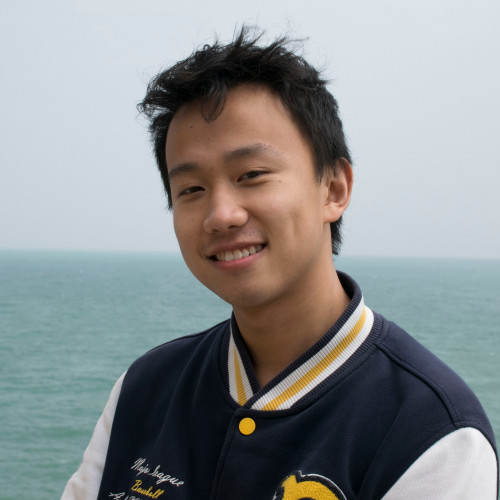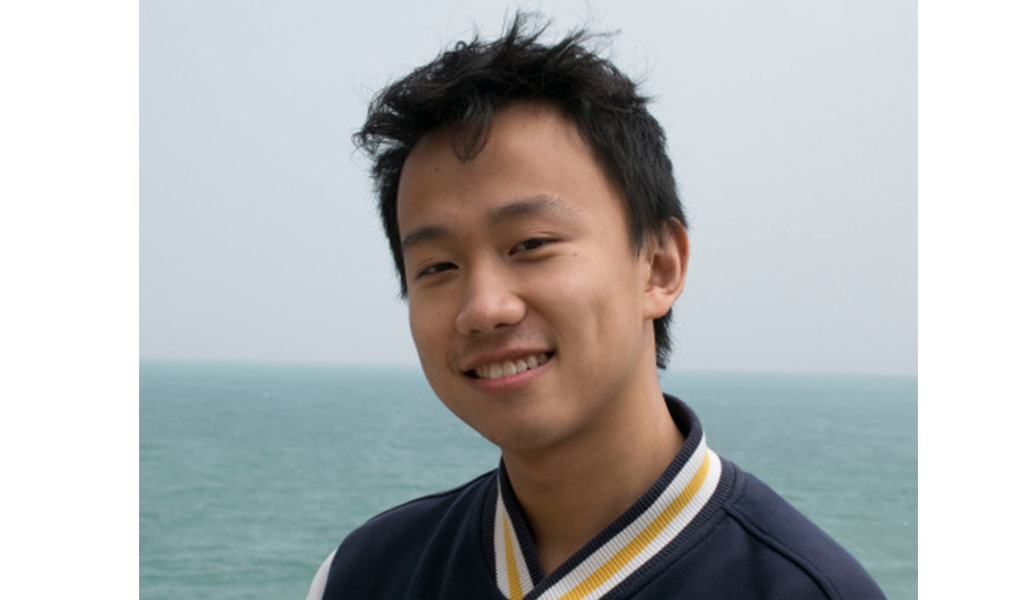
Yuxuan Liu, a recent graduate of the Master of Science (MS) in Game Science and Design program, is a creative game designer and programmer who is passionate about embracing AR / VR development and designs. During his time at Northeastern, he held co-op positions at Tencent (as a Game Designer) and then at BitReel, where he now works full-time as an Augmented Reality Software Engineer. He also worked on a thesis project that focused on applying tangible interaction in a VR environment, which was recently accepted to the upcoming Future Technologies Conference (FTC 2020), the world’s premier forum for reporting technological breakthroughs in the areas of Computing, Electronics, AI, Robotics, Security & Communications. He earned a CAMD Student Grant for Research, Scholarship and Creative Activity to support this presentation in November.
We had the opportunity to catch up with Yuxuan and learn more about his passion for game design, AR / VR, and his time at Northeastern. Read more below.
How did you become interested in making and studying games?
My interest in video games started pretty early, around when I was six years old. My father bought me a computer, and since then I have been playing games. Actually, for a long time, I was just playing games and never thought about making games in the future. It changed because of a conversation with my father when I was in high school. He challenged me by asking, “You’ve played so many games, but can you make one by yourself? Are you able to make a living with this in the future?” After this, I chose Software Engineering for my undergraduate and Game Science and Design for my master’s.
As I dive more into the game industry, I think games are so much more than pure entertainment.
For some games, they can be considered a kind of art; a good game is like a great book or a movie. I can always get something from it, and for me, sometimes they even can provide more than books or movies, because they are more immersive and I can be a part of them rather than just an audience member. I have gained so much from video games: teamwork and time management skills, exposure to the culture of a different country, immersion into fantasy world, as well as happy moments with my family or my friends. Those things have given me strength for this path I chose. As a game designer, or game developer, we should all have a reason for why we are here to make games, and we should make games that we love.
How did you grow to start using AR/VR and diving into that realm?
My first time using VR was five years ago back in 2015, when my professor at the time brought us a VR device – and I remember I tried a VR demo of a roller coaster. I was so impressed with the realism and immersive experience it brought to me and after that, I started to be interested in the technology and applications around mixed reality.
I think there is a lot of overlap in video games and mixed reality. In the virtual environment, it is always good to have initiative interactions and some sort of mechanic and dynamic. Besides, I think AR/VR is a future trend of video games. So, I never gave it up after I came to study at Northeastern. I worked as a Hololens developer in our Discovery Library last year and I also made several AR and VR games for the course work.
How did your co-ops during your time at Northeastern help you?
I had two co-op experiences during my time at Northeastern. One of them was at a global co-op as a game designer in Tencent for three months. The other one was as an AR developer in BitReel. I think those co-op experiences helped me a lot.
The work experience at Tencent gave me insight into the game industry which I would never fully understand if I did not actually work there.
The other co-op in BitReel was quite enjoyable. I like the people there and what we are building with augmented reality, and after I graduated and I started work full-time for BitReel.
Tell us about your project that recently received a CAMD Student Grant for Research, Scholarship and Creative Activity!
This project is my thesis project and I’ve been working on it since last year. It’s called cARd: Mixed Reality Approach for a Total Immersive Analog Game Experience. This project focused on applying tangible interaction in a VR environment and explored how it impacted the analog game experience compared to a traditional setup. I recreated a card game in the VR environment and proposed a way to let players play the VR game with the real cards. Then, I did a user experiment and compared the VR version of the game with the original version of the game.
This project showed some interesting results and after I finished the thesis, with the help of Professors Casper Harteveld and Ray LC, we managed to get it accepted by FTC Future Technologies Conference (FTC 2020), and the grant covers the registration fee.
Finally, tell us about what the next few months look like for you.
I will continue to work full-time for BitReel, fully focusing on the AR project I am working on right now. I have another ongoing paper at Northeastern and hopefully we can get it submitted in September, all of the work around it can be completed remotely!


